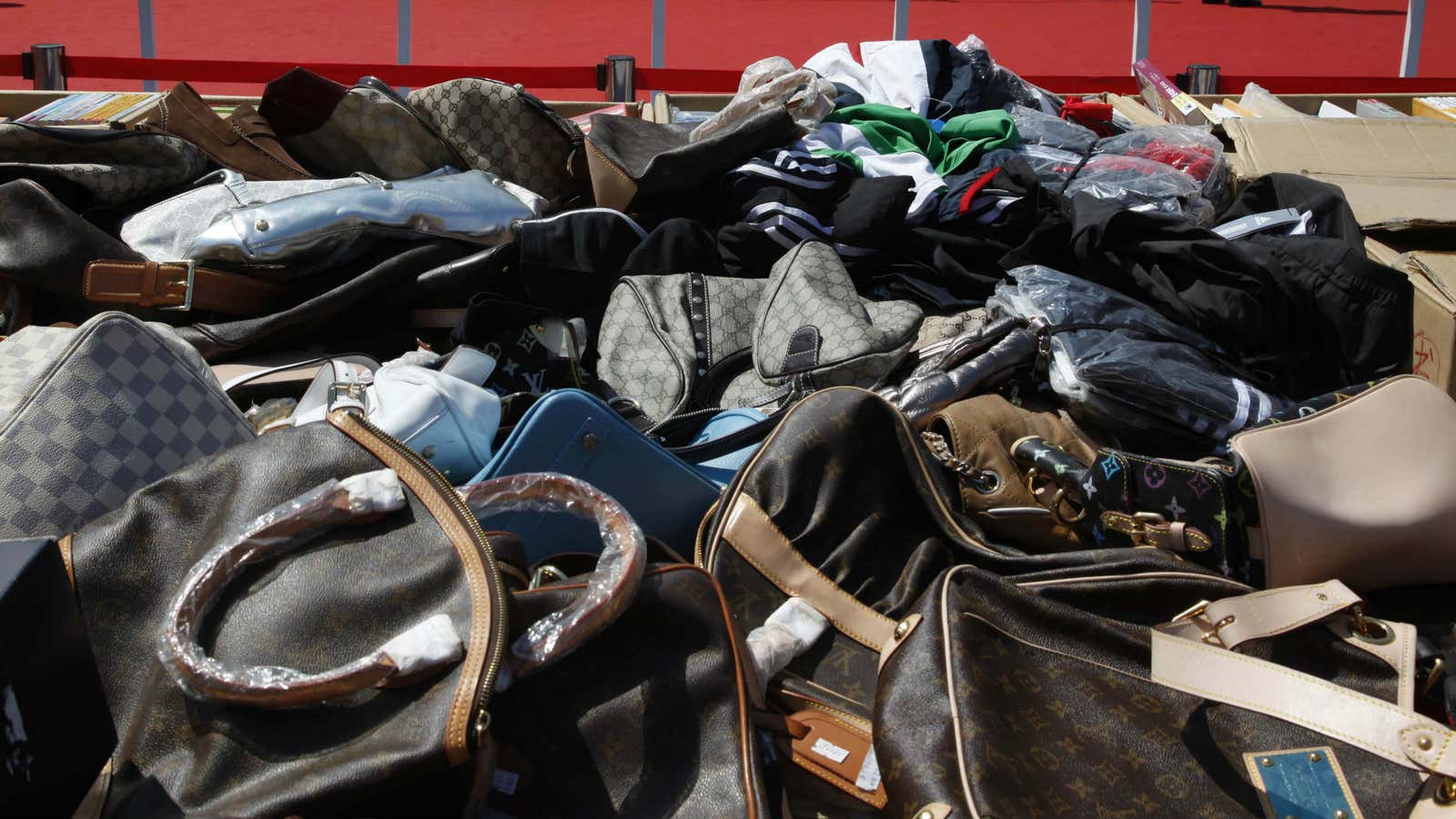The upcoming IPO of Chinese online retail giant Alibaba has spawned some incredibly optimistic estimates of what the company may be worth when it finally lists on a stock exchange, which is expected to be in New York and to happen this year.
But much of the analyst excitement surrounding the IPO has ignored one pretty glaring problem with the company’s business model—it is hard to tell where many of the products that sell on Taobao, the company’s virtual shopping mall with 7 million registered vendors, originally come from. Oh, and a lot of these goods are counterfeit.
Taobao and Alibaba’s T-mall both thrive on brands. T-mall hosts the official online company stores for some of the biggest names in retail, while Taobao connects individual buyers and sellers. But they also have, for years, also been a platform to sell cut-price products that are fakes—or as was the case with Google Glass earlier this month, products that are authentic but which manufacturers aren’t actually selling to the public yet.
The Wall Street Journal just detailed the extent of the problem in an extensive article, describing the expensive efforts of frustrated manufacturers to have fakes pulled from Taobao, as well as some pretty suspect products—like an Oil of Olay suncream that was “incredibly stinky” and a backpack “featuring Snow White, Cinderella and Sleeping Beauty,” that was “inscribed with the word ‘Diteyn’ on the front, rather than Disney.”
The percentage of goods that are fake on Taobao is hard to determine. But the estimates are high, the Journal reported:
Haydn Simpson, a product director at counterfeit-tracker NetNames, said his clients, which range from luxury brands to apparel makers, estimate that 20% to 80% of the products listed as theirs on Taobao are fakes.
Alibaba did not comment for the story, because the company is in its pre-IPO period but the company spends millions a year eliminating counterfeit goods from its online mall, The Wall Street Journal said.
Chinese authorities are also stepping up their fight against online counterfeits by increasing fines for violators and resources to fight them. But efforts so far have been insufficient, as have the “takedown and complaint procedures offered by these platforms,” intellectual property experts say.
Alibaba was removed from a US “Notorious Markets” list of companies in 2012 after the company increased efforts to take down counterfeit products and hired a lobbyist in Washington. But the prevalence of fake goods still available indicates there’s plenty of work still to be done. Before it can list in the US, Alibaba may need to do another big cull of vendors selling fake goods, a move that is sure to affect Alibaba’s fantastic earnings, and those huge IPO projections.
